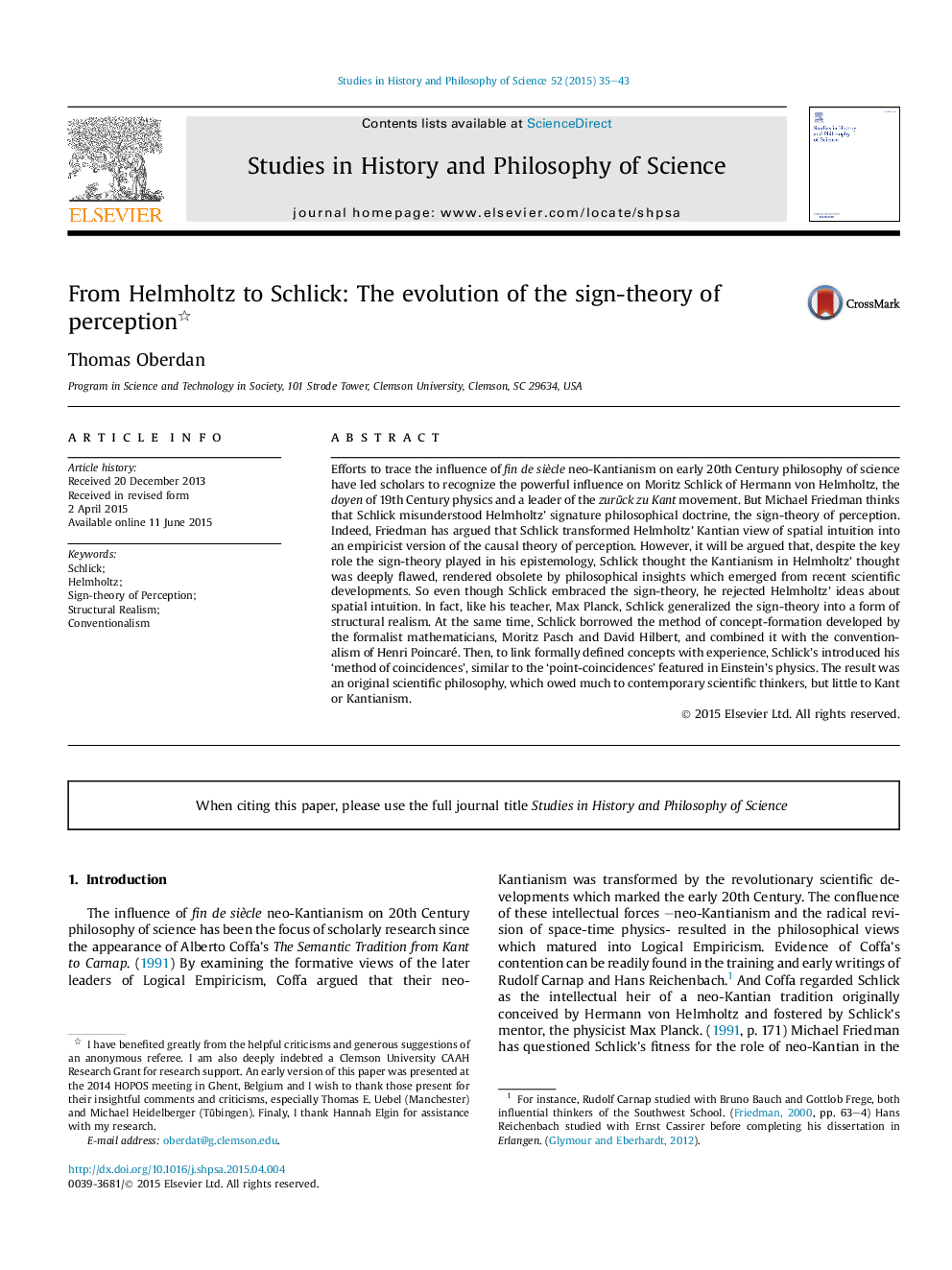| Article ID | Journal | Published Year | Pages | File Type |
|---|---|---|---|---|
| 1160304 | Studies in History and Philosophy of Science Part A | 2015 | 9 Pages |
•Helmholtz' sign-theory of perception and Schlick's early epistemology are contrasted.•Helmholtz' Kantian understanding of perception is critiqued.•Schlick's epistemology incorporates ideas from Planck, Poincarè, and Einstein.•It is concluded that the advances incorporated in Schlick's epistemology rendered Helmholtz' Kantianism obsolete.
Efforts to trace the influence of fin de siècle neo-Kantianism on early 20th Century philosophy of science have led scholars to recognize the powerful influence on Moritz Schlick of Hermann von Helmholtz, the doyen of 19th Century physics and a leader of the zurȕck zu Kant movement. But Michael Friedman thinks that Schlick misunderstood Helmholtz' signature philosophical doctrine, the sign-theory of perception. Indeed, Friedman has argued that Schlick transformed Helmholtz' Kantian view of spatial intuition into an empiricist version of the causal theory of perception. However, it will be argued that, despite the key role the sign-theory played in his epistemology, Schlick thought the Kantianism in Helmholtz' thought was deeply flawed, rendered obsolete by philosophical insights which emerged from recent scientific developments. So even though Schlick embraced the sign-theory, he rejected Helmholtz' ideas about spatial intuition. In fact, like his teacher, Max Planck, Schlick generalized the sign-theory into a form of structural realism. At the same time, Schlick borrowed the method of concept-formation developed by the formalist mathematicians, Moritz Pasch and David Hilbert, and combined it with the conventionalism of Henri Poincaré. Then, to link formally defined concepts with experience, Schlick's introduced his ‘method of coincidences’, similar to the ‘point-coincidences’ featured in Einstein's physics. The result was an original scientific philosophy, which owed much to contemporary scientific thinkers, but little to Kant or Kantianism.
